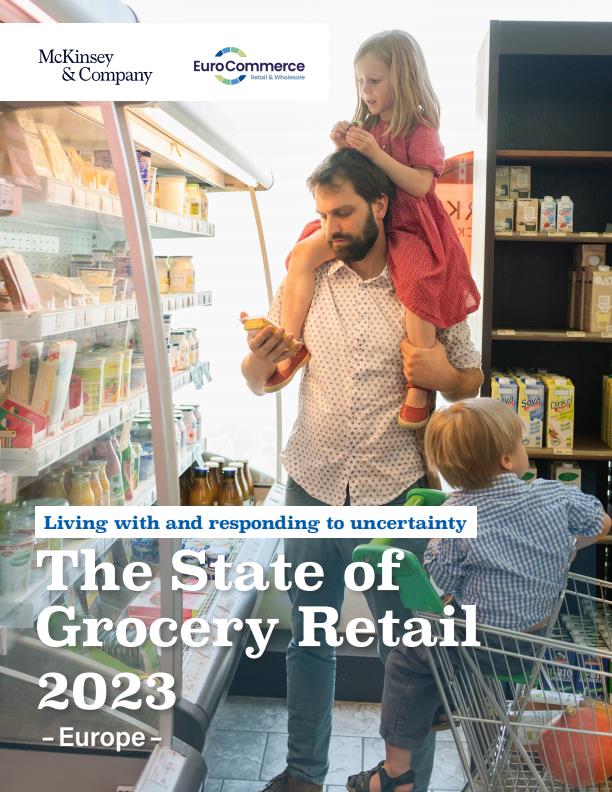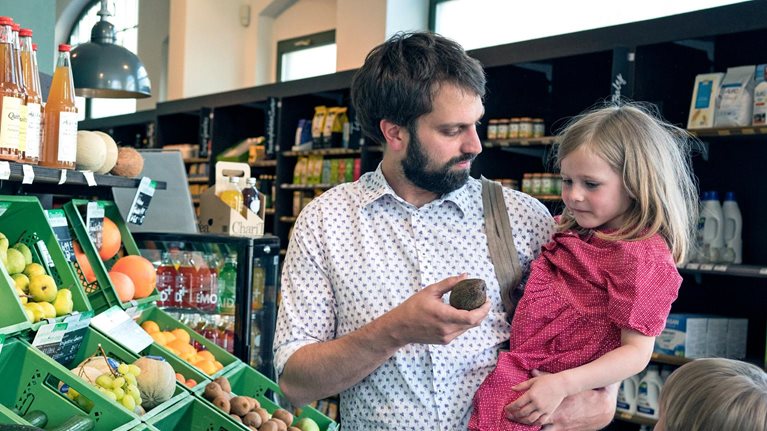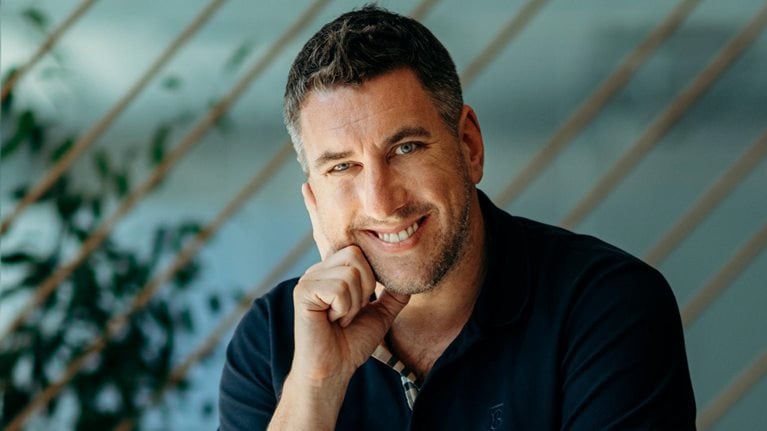McKinsey: Over the past ten years, ICA has been among the most successful grocers in Europe. What are the key drivers of that success?
Nina Jönsson: Our biggest asset is the entrepreneurship of our store owners. Originally, ICA was an association of individual store owners who came together to collaborate on things like purchasing, logistics, and marketing. ICA Gruppen was established only ten years ago, and to this day, anything that comes out of our central functions is thoroughly tested in a small number of stores and refined before we scale it up. Our store owners keep their ears close to the ground, and they make sure that we bring only the most promising new products or categories to the market. Additionally, they help us adjust our offering to whatever is required at the local level.
Another important success factor is our evolving ecosystem of adjacent businesses. Next to grocery stores, we also run Sweden’s leading pharmacy chain and a bank that has grown out of our customer card. Everything we do revolves around everyday consumption.
McKinsey: What are your expectations on how market conditions for the grocery retail industry will evolve in 2023? What could that mean for a player such as ICA?
Consumers will always look for ways to save time and make their lives easier, and that is what we offer.
Nina Jönsson: I think market conditions will remain challenging throughout 2023. The disposable income of consumers has taken a major hit because of the rising cost of living and because salaries are not growing as fast as prices. So there is a lot of price pressure that will lead to further polarization in the sector. In the past, consumers often did all their shopping with us; now, many of them go to discounters, at least for basic items. But at the same time, many people are spending more money at restaurants. So I believe that convenience will still be an important factor in the future. Consumers will always look for ways to save time and make their lives easier, and that is what we offer.
McKinsey: Do you see indications of customers trading down more?
Nina Jönsson: Absolutely. For example, we saw a big increase in the share of private labels in the fourth quarter of 2022, and I believe it will continue. Once consumers try a private-label product, they are often pleasantly surprised by the product quality, and some of them stick with private label. I have no doubt that the share of private labels in the market will continue to grow, and we will keep investing in our private-label offering to take advantage of that trend.
McKinsey: Do you observe any changes in consumer attitude toward sustainability? And how are you driving your sustainability agenda at ICA?
Nina Jönsson: Right now, consumers are focused on saving money, so they are buying fewer sustainable products. Our share of ecological products is currently at an all-time low, around 3 percent. But I believe that this is a temporary dip. Consumers care about sustainability, and so do we. We remain committed to our sustainability targets, and we continue to invest in decarbonization.
Right now, consumers are focused on saving money, so they are buying fewer sustainable products. But I believe that this is a temporary dip.
For example, we are reducing the packaging material of our private-label products. We also work with local growers as much as we can to avoid transportation of goods over long distances, and also because we know that our customers value local products. At the same time, we have to make sure we stay competitive. For example, when we tried offering only Swedish meat in our stores in Sweden, we found that the high price premium drove some customers to other players offering imported meat at much lower prices. But we are keeping sustainable options in our assortment. If we delist sustainable products now, they may not be available when the demand picks back up. Because of our size, what we do has an impact on the whole market, and we take that responsibility very seriously.
McKinsey: What about meat alternatives? Is that a big topic for ICA?
Nina Jönsson: It’s a very big topic. We believe that consumers will eat less meat in the future. We are working with a lot of smaller companies and start-ups that focus on meat and dairy alternatives. We need to have innovative products in our assortment to meet this growing demand. That is why we are committed to developing and offering products that are good for the environment and that taste good.
As vegan diets are becoming more popular, we also see a lot of opportunities for further differentiation and innovation in produce. Our fruit and vegetable department used to comprise just a handful of products. Now, it has around 500 SKUs. Eating green is a huge trend in our markets. That trend will continue, and we will continue to innovate in this area.
McKinsey: Do you observe any variation in performance across different formats? How does ICA’s multiformat configuration and overall positioning shape your actions in the context of current trends?
Nina Jönsson: We have four different store types, but our customers don’t think about that. They shop at ICA. So we will decrease the differentiation between formats somewhat. All our formats need to communicate value for money, regardless of whether it is a supermarket or a hypermarket, and we need to have the best assortment in our catchment areas.
The main shift that I see happening in the market is not between formats but between channels. Channels that communicate exclusively on price have been the winners in the recent past. But not all consumers feel the same price pressure, and proximity is still key. So we focus on that, and we make a point of adjusting our proposition to the local environment in each store.
McKinsey: And what are your observations regarding e-grocery?
Nina Jönsson: In Sweden, our main market, our online share is about 3.5 percent of total sales. Most of it is store pickup, rather than home delivery, because many customers are not prepared to pay for home delivery at the moment.
Now that COVID-19 seems to have run its course, the share of online is actually decreasing, but we believe it will grow in the future. The big spenders, such as families with kids, still want to save time, and online shopping helps them do that. So we will continue to invest in online. We believe it has the potential to reach up to 10 percent of our total sales.
In contrast, instant delivery and quick meals are not a priority for us, at least not at scale. We conducted tests in urban areas, such as downtown Stockholm, and they were relatively successful, but we don’t think instant will be a major growth driver for ICA.
McKinsey: How do you deal with margin pressure?
Nina Jönsson: We have a major productivity program to achieve improvements in our operations, including logistics, and bring down costs across the entire organization. For example, we will increase the number of robots we use and take advantage of AI to make our operations more efficient. In general, we work on productivity to be able to invest in loyalty and value for money.
On the supplier side, we still see some price increases, but we expect prices to come down in the second half of the year. Energy prices will remain high, though, as the war in Ukraine continues, and that means production will remain expensive, so we have to stay vigilant.
We have a major productivity program to achieve improvements in our operations, including logistics, and bring down costs across the entire organization. For example, we will increase the number of robots we use and take advantage of AI to make our operations more efficient.
McKinsey: What are the major opportunities for ICA going forward?
Nina Jönsson: The vast amount of traffic we attract is a huge opportunity. Not only do we have a lot of shopper traffic in our stores but we are also one of the most popular websites in Sweden. For example, people who search for a good pancake recipe routinely land on our site, looking for inspiration and ingredients. The question is what happens next. What else can we offer them? How can we create pleasant surprises? The opportunities to increase our share of wallet are endless if we play our cards right.
More broadly, our ecosystem is a major source of opportunities. Take our customer card, for example. When banking interest rates were low, we introduced the best savings interest rate in the market in Sweden. Customers rushed to put money on their cards. Within the first two weeks alone, we saw millions transferred into these card accounts, and now customers are spending this money to shop at our stores. That is just one example of how we create synergies in our ecosystem of everyday consumption.
McKinsey: Is there anything else you would like to share with your fellow grocers?
Nina Jönsson: I’m very passionate about our sector as an entry point into the world of employment for young people. In Sweden, we are one of the biggest employers, and a lot of people find their first job at one of our stores.
As an industry, we have a huge responsibility to model our values, create a good environment, treat the people who work for us well, and create opportunities for them within and beyond grocery stores.



